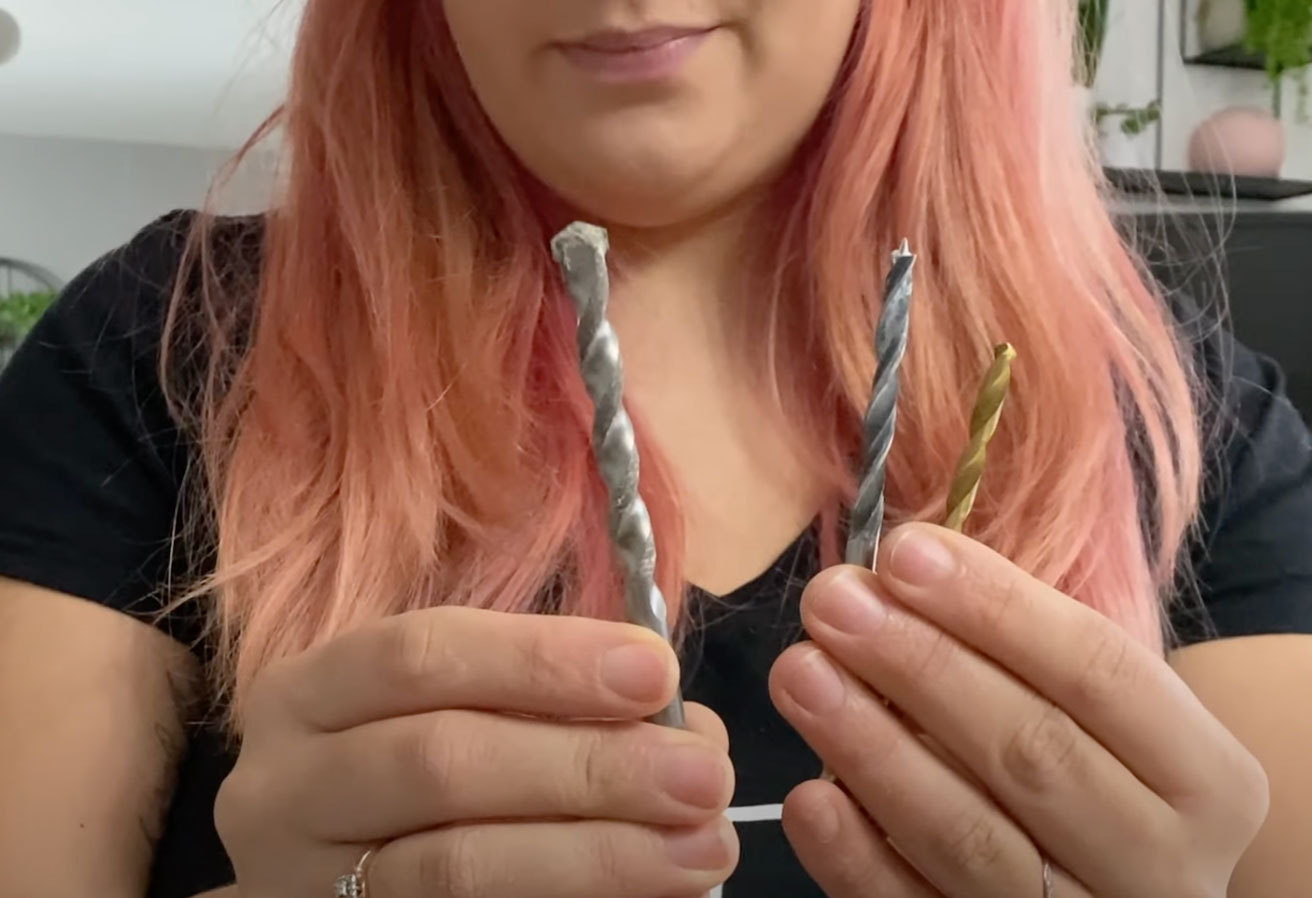
When you're entering the world of DIY, knowing about the different types of drill bits is a must. Whether you're building a bespoke built-in bench or adding a little shelving, using the wrong drill bit for your project could cause damage not only to your drill bit, but also to your entire project and/or wall.
When using a combi drill or other type, the four main bits you’ll come across or need for your walls are a masonry bit, a wood bit, a tile bit, and a twist bit. Drill bits from different brands will look slightly different but they will still feature the same main characteristics to help you distinguish between them.
Twist drill bits
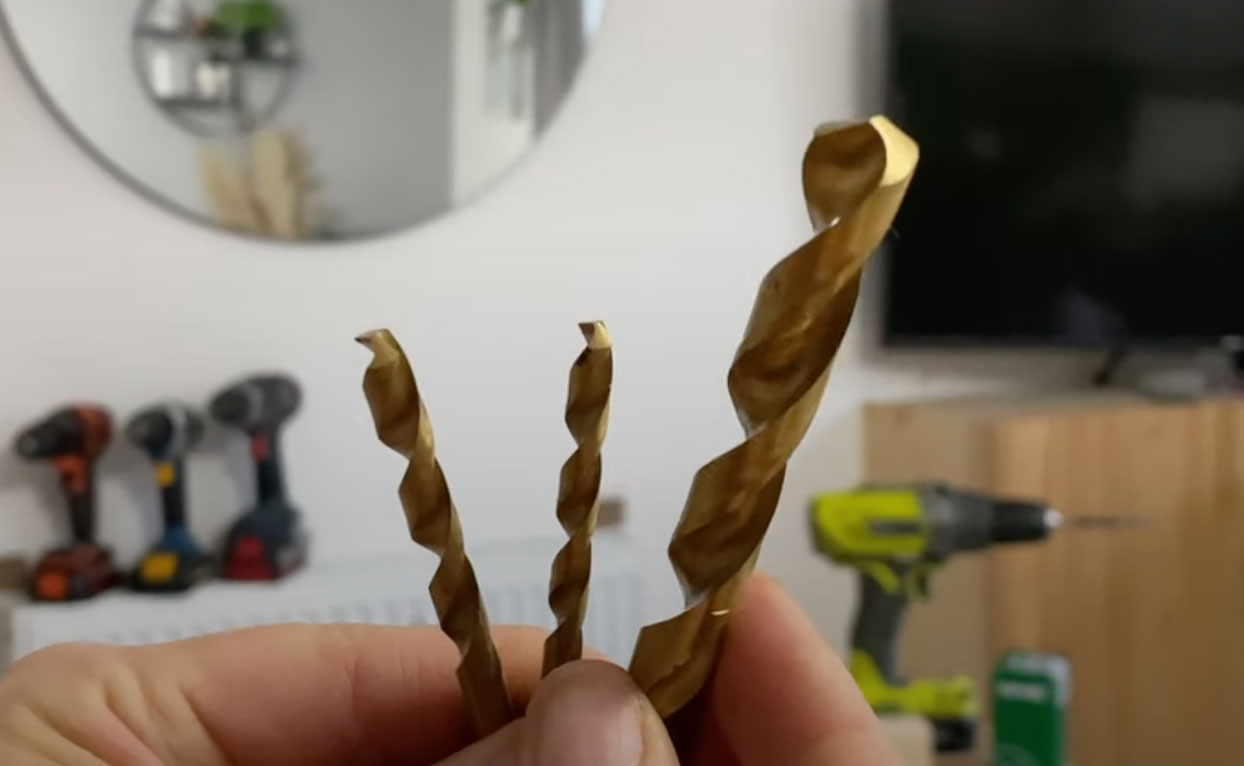
These can be used on several materials including wood, metal and plastics and will likely be your most used type of bit for different DIY projects. The pointed tip cuts through material and the spiral length allows the material to be drawn out of the hole and keep the bit straight as you drill. They come in two types - HSS or Carbon Steel.
HSS (High-Speed Steel) can be used in any material, so are the ones you’re most likely to use, however they can withstand high temperatures caused by friction which allows them to be used on metal. Most HSS twist bits are gold in colour thanks to the Titanium nitride coating which helps them self-lubricate when drilling into metal. HSS bits can be found easily on Amazon or at your local DIY store.
Carbon Steel bits are specifically made for drilling wood and should never be used to drill metal as they would just shatter. It’s probably a waste of time buying these in my opinion – stick to HSS. If you do want to go down this route you can head to Amazon for a good selection.
These bits come in sizes ranging from 0.4mm, up to 12mm, but are only really designed to drill small holes with not much debris output. The tinier sizes do snap easily, so extra care is required when drilling. If drilling a larger hole or drilling into hardwood, withdraw the bit occasionally to remove the debris and not clog up the hole. Also, personally, when working with wood, I prefer using dowel drill bits.
Wood drill bits
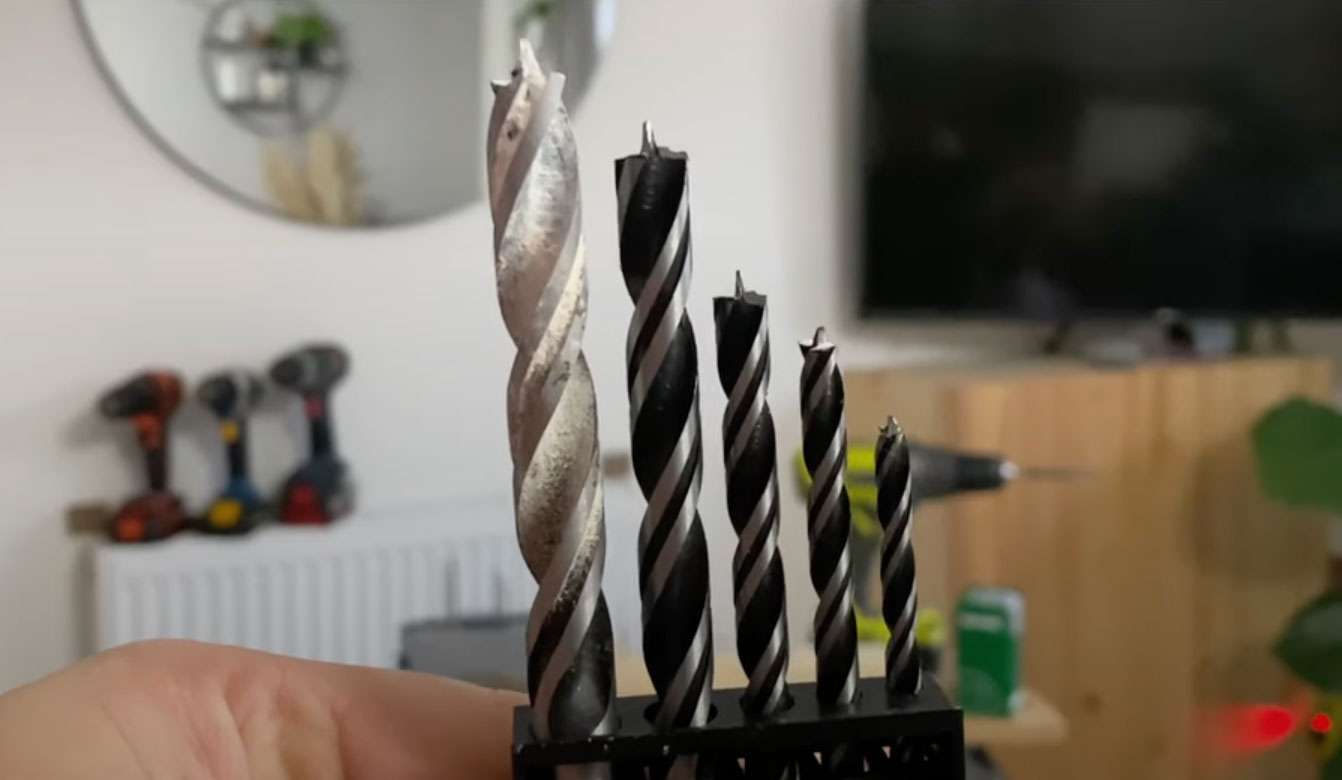
It’s not often you’d need a wood drill bit for walls, as you can drive screws straight into wooden studs for a superior hold, but when working with plasterboard or working with timber on other building projects, you’ll come across a few different types of wood bits to get the job done right. The most common you’ll find is a spur point bit, commonly known as a dowel bit.
These have a sharp point on the end to help grip the wood when beginning to drill. They also have a sharp double-bladed thread which helps keep the hole straight and clean when drilling through timber. They can be used to drill fast through timber of any type as well as plasterboard (and even some plastics) and are mostly used for drilling holes for dowels when a clean parallel hole is required. The sizes for this drill bit range from 3 to 10mm.
There are also other common types of wood drill bits you may come across for your projects: a countersink with clearance drill bit, a flat wood bit, a plug cutter, a hole saw and a forstner bit.
Tile drill bits
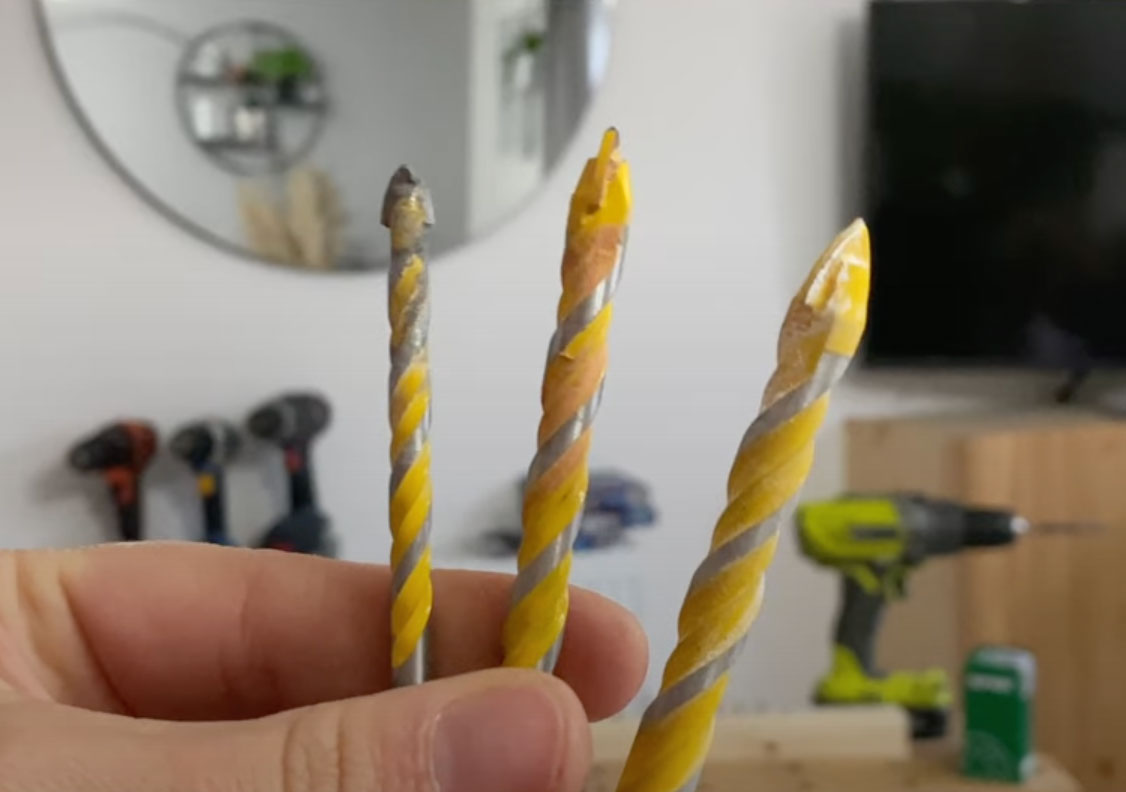
If you're installing shower tiles or tiling a wall, you, might find yourself having to drill through ceramic tile, porcelain, or even glass. A standard drill bit will crack and chip the material. Tile bits feature a spear-like point which helps cut into the material and prevent cracking and chipping. These usually range in sizes from 3mm to 10mm.
Masonry drill bits
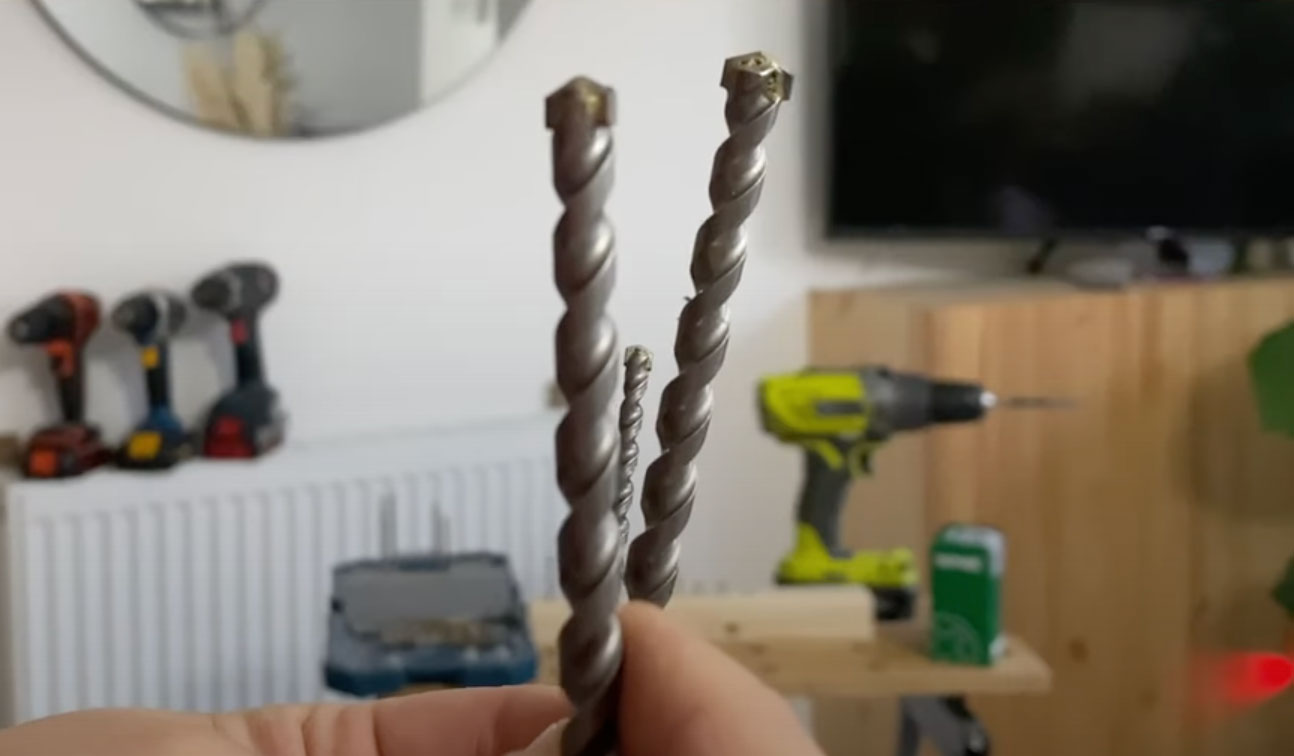
Featuring a larger angled tip, masonry drill bits are used to bore into brick, concrete, quarry tiles, stone, and breezeblock. These are best used on a slow rotational speed to prevent overheating and can be used in hammer mode and in gear 1 for tougher jobs. You will need to pull out the bit from the material often to prevent dust build up as this can make drilling more difficult and cause overheating. These bits range in size from 4mm to 16mm and can come in huge lengths of up to 400mm to enable you to drill through walls.
When starting your DIY journey, I’d recommend at least having a good set of HSS twist bits and some masonry bits, however for more than just your basic holes in the wall, you may want to expand your collection to include the more specialised wood bits as covered above. Good drill bits are also worth investing in and should be taken care of and sharpened often as a sharp drill bit cuts better and with much less effort and gives you a much cleaner hole.
Join our newsletter
Get small space home decor ideas, celeb inspiration, DIY tips and more, straight to your inbox!
Jasmine Gurney is a DIY pro, inspiring women with power tools via her home improvement blog Oh Abode and on Realhomes.com.
-
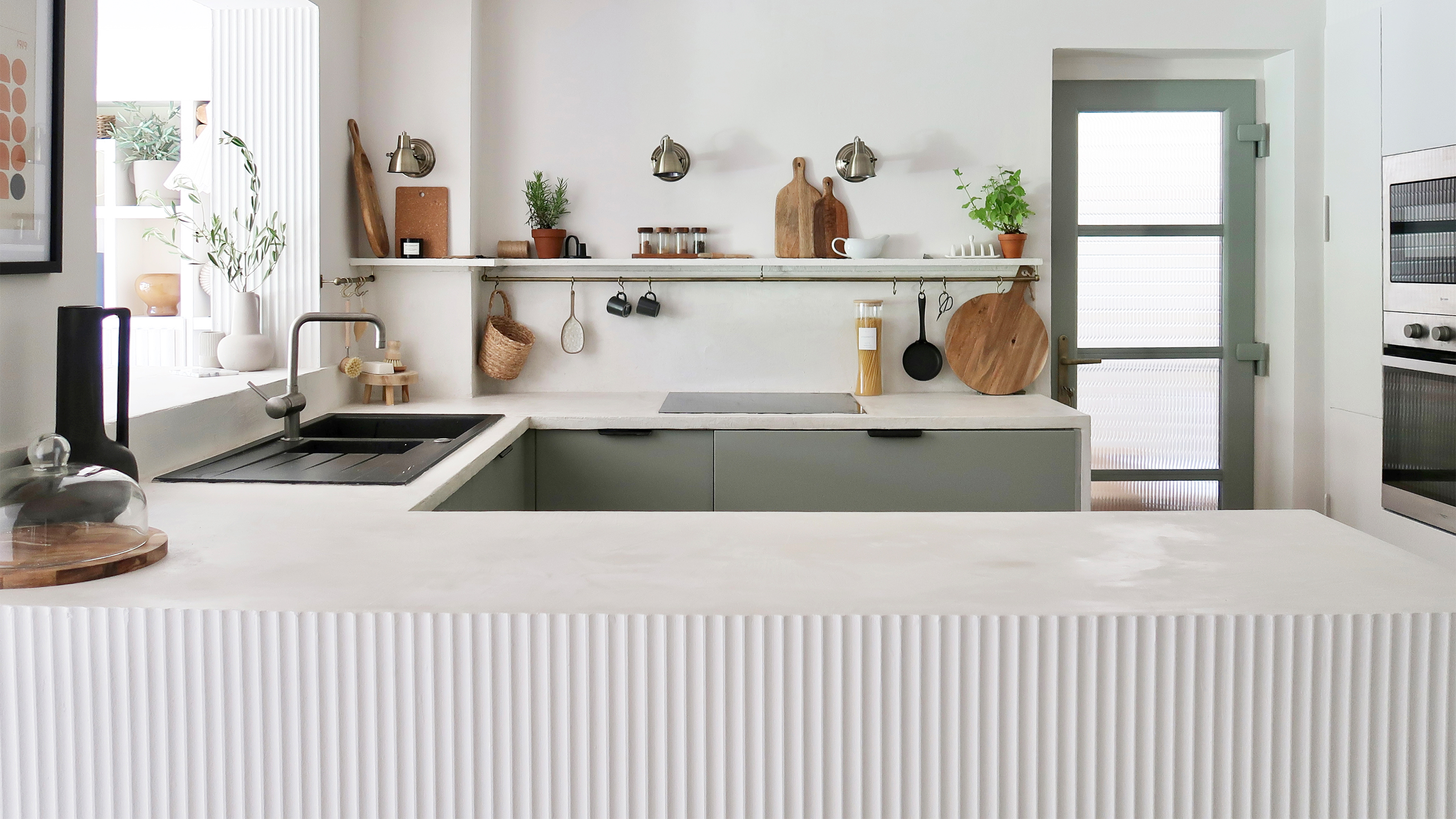 A $200 fluted panel transformed my drab kitchen in just one weekend
A $200 fluted panel transformed my drab kitchen in just one weekendHow to install a fluted kitchen panel: A speedy and achievable DIY tutorial even for DIY novices
By Claire Douglas Published
-
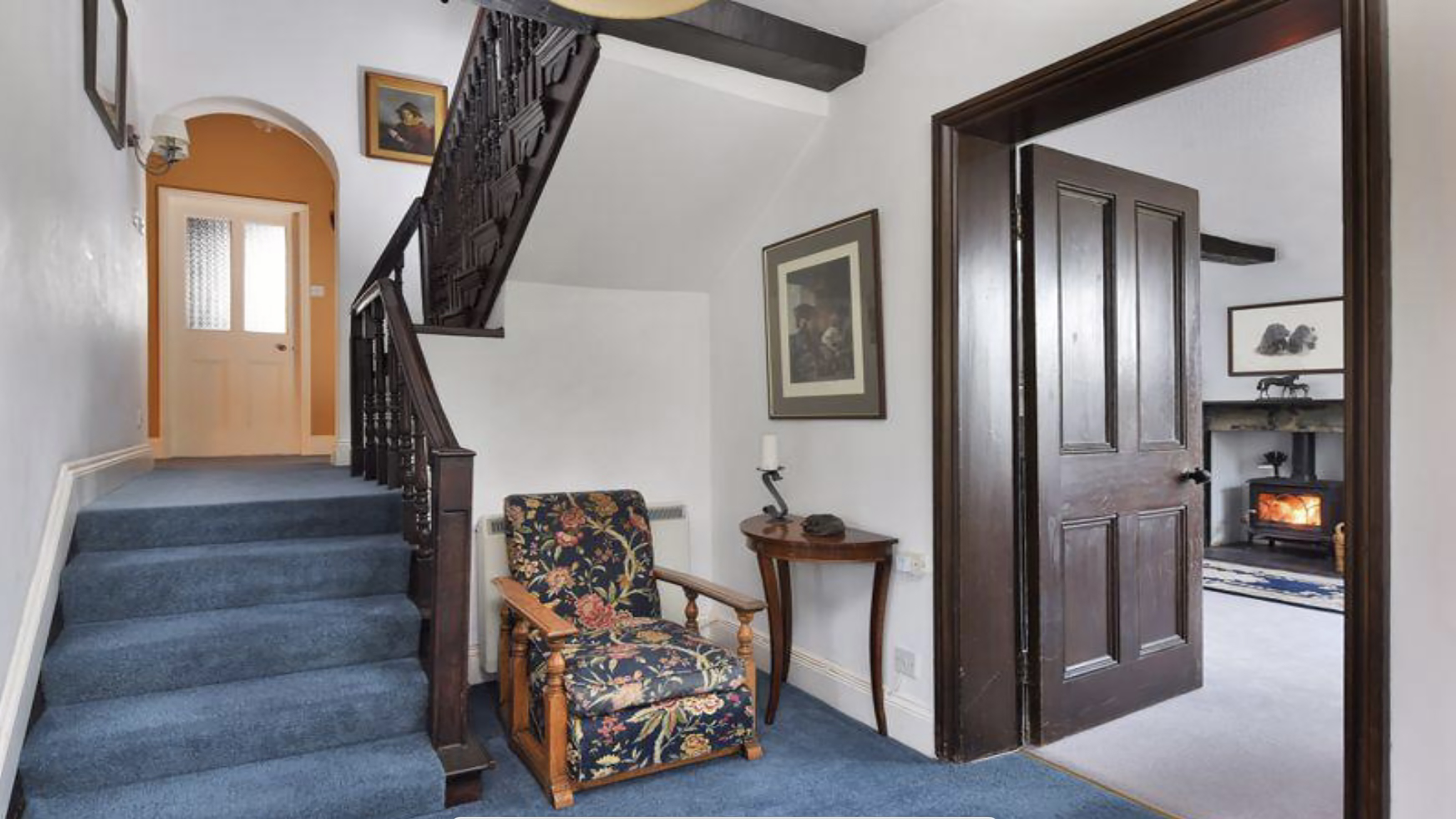 How to replace a broken staircase spindle in 30 minutes flat
How to replace a broken staircase spindle in 30 minutes flatA missing or broken spindle on a staircase is not only unsightly, but it can be a real hazard. This is how to fix it in a few quick steps.
By Kate Sandhu Published
-
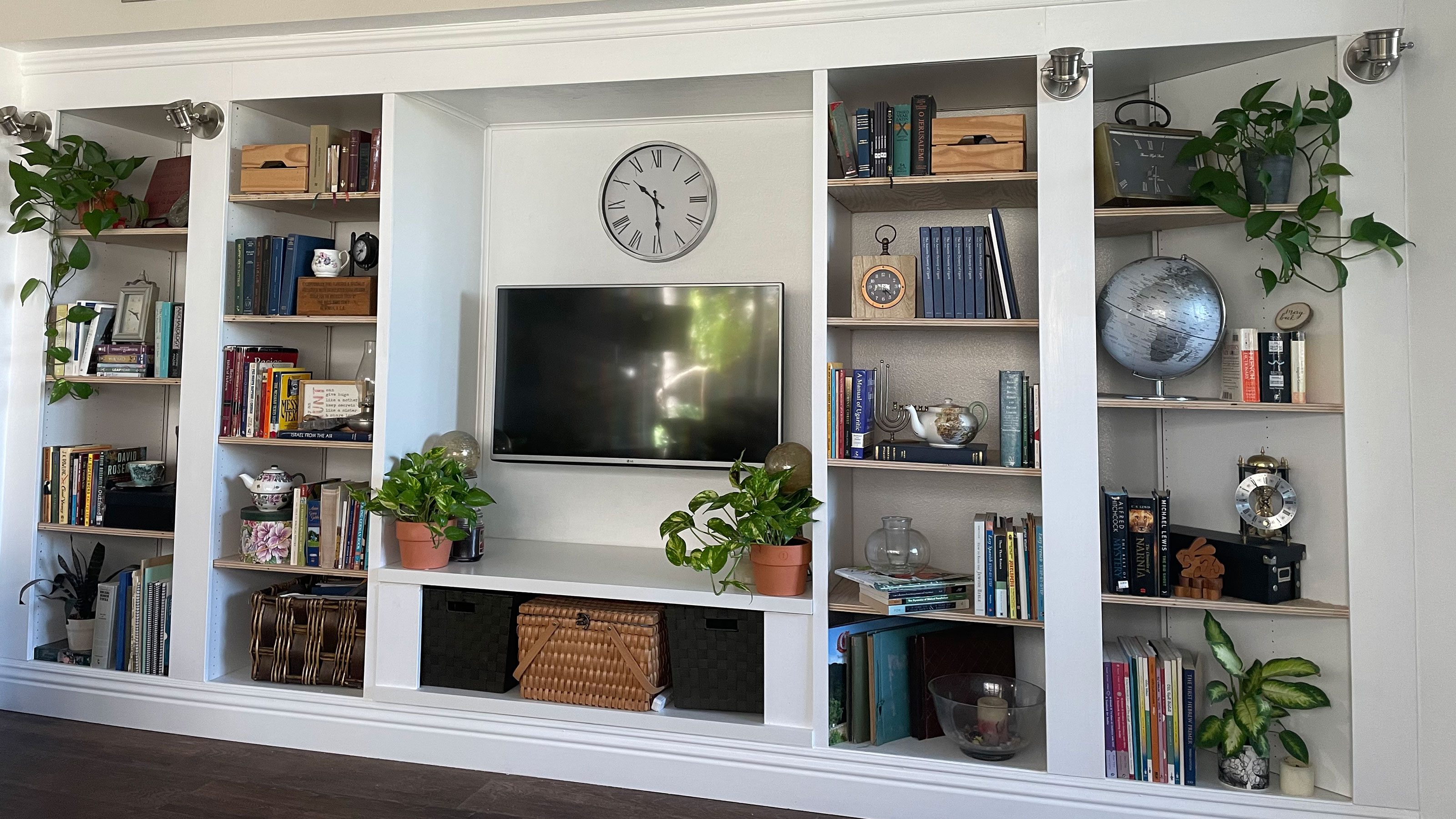 An IKEA Billy bookcase hack inspired this cute media wall DIY
An IKEA Billy bookcase hack inspired this cute media wall DIYThis cute DIY was inspired by an IKEA Billy bookcase hack and brought a ton of symmetry to an otherwise basic media wall space.
By Camille Dubuis-Welch Published
-
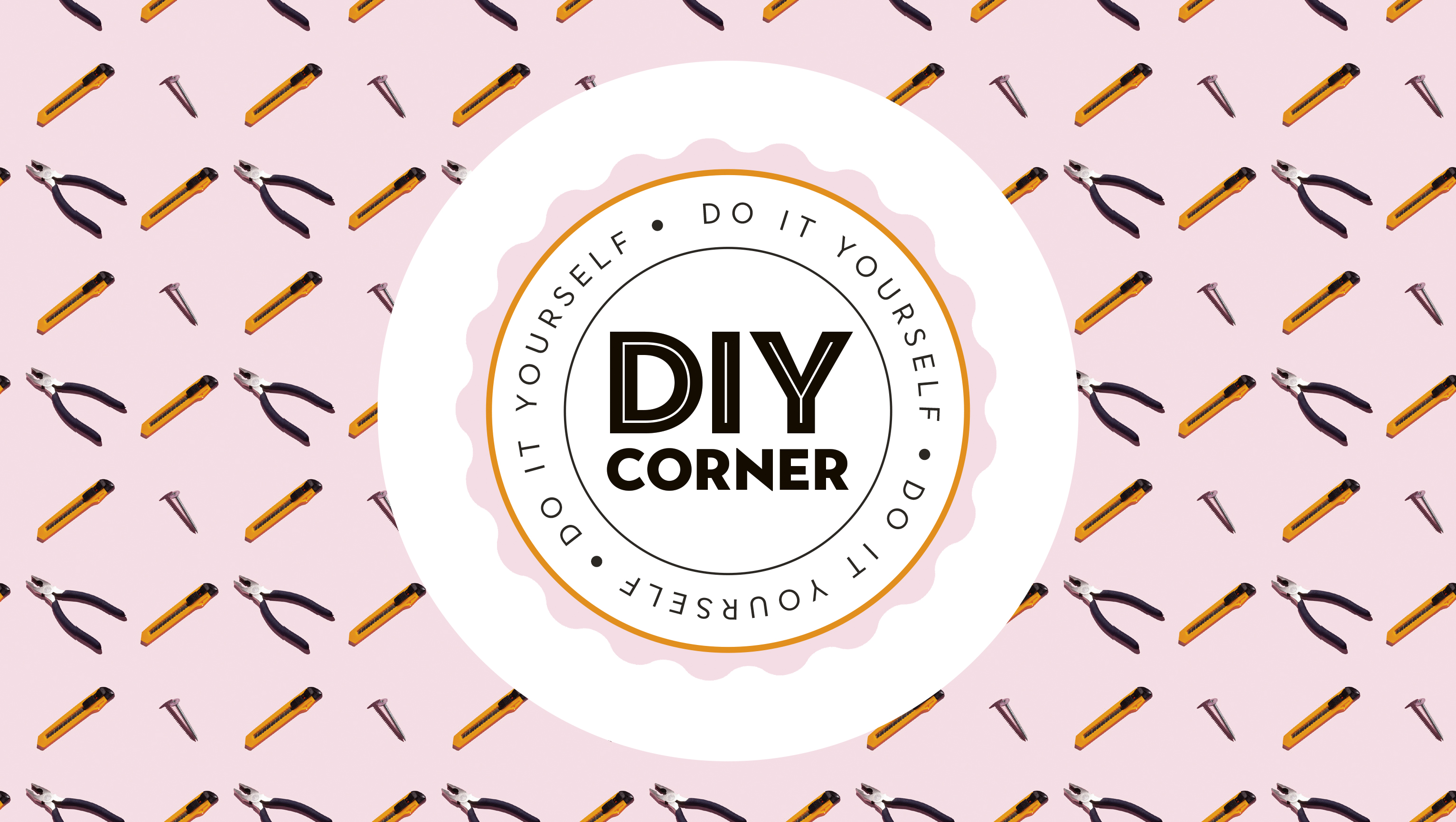 Share your small space glow up to win $150 in the Real Homes competition
Share your small space glow up to win $150 in the Real Homes competitionShow off your creativity and DIY skills to win $150 and for the chance to be featured exclusively in Real Homes magazine
By Camille Dubuis-Welch Last updated
-
 This oversized headboard looks designer, and takes 5 steps to DIY
This oversized headboard looks designer, and takes 5 steps to DIYSuper simple to DIY, this oversized headboard will give your bedroom space all the designer vibes you could dream of.
By Claire Douglas Published
-
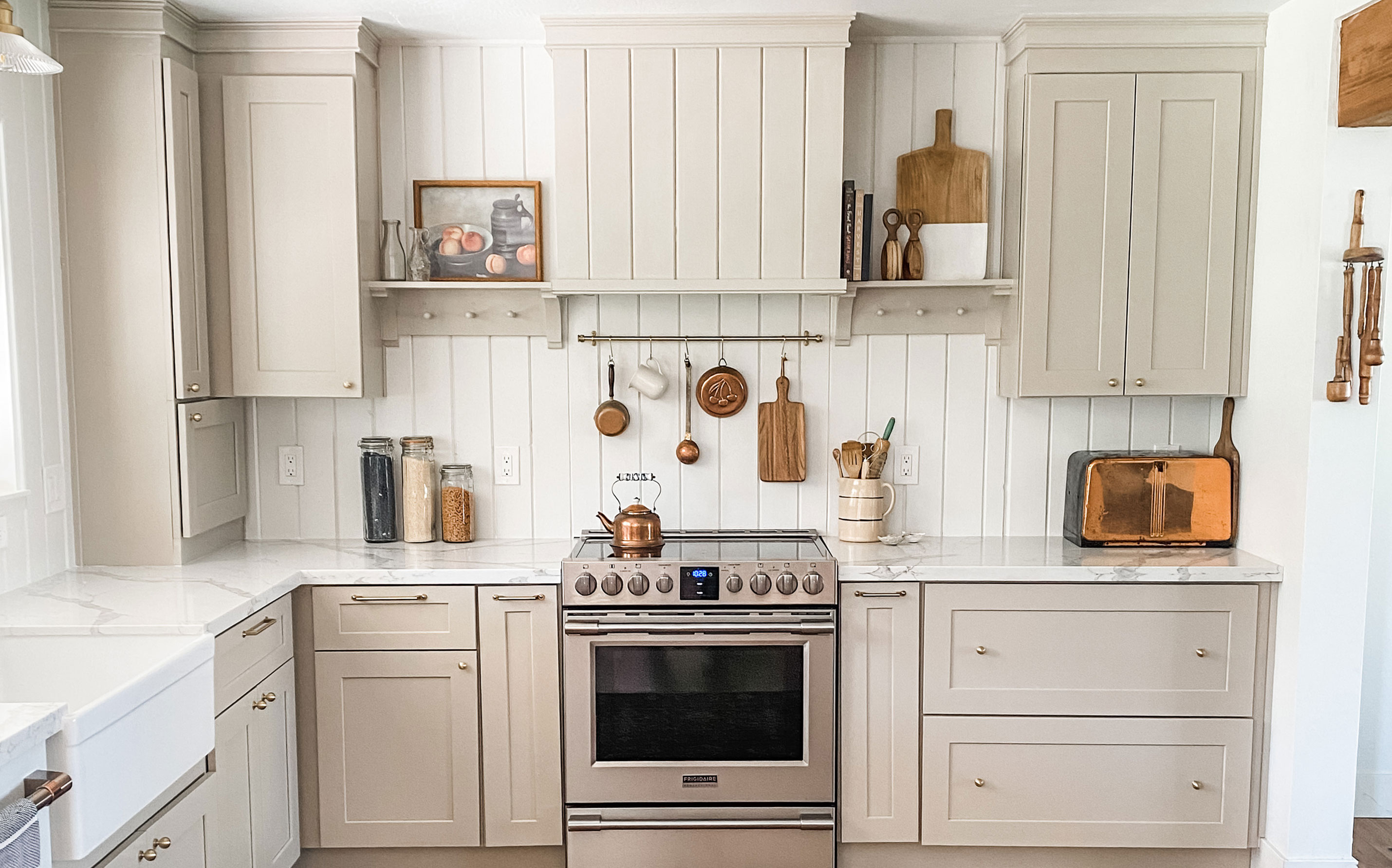 My DIY range hood and backsplash build gave my kitchen the perfect farmhouse finish
My DIY range hood and backsplash build gave my kitchen the perfect farmhouse finishI craved charm in my kitchen space and adding a custom range hood and shelving was the best move.
By Brooke Waite Published
-
 How to paint a radiator in 7 steps
How to paint a radiator in 7 stepsPainting radiators properly is all about choosing the right paint and the best process. Get interior designer-worthy results with our how-to.
By Kate Sandhu Published
-
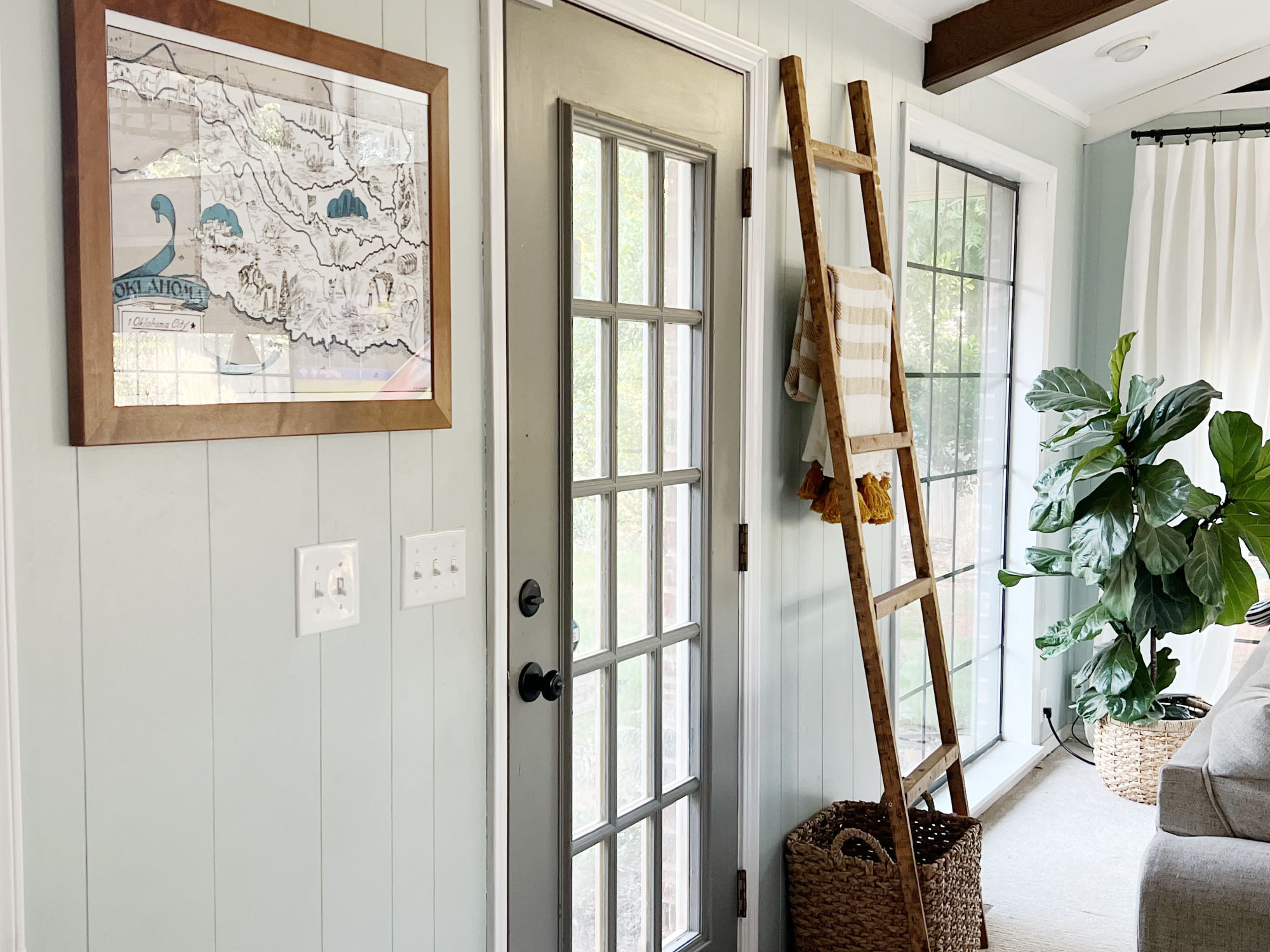 How to install a door knob
How to install a door knobUpdating your interior and exterior doors can be as easy as changing out the hardware! The best part is that installing a door knob is very DIY friendly. Follow these simple steps and enjoy a fresh look on your doors!
By Dori Turner Published